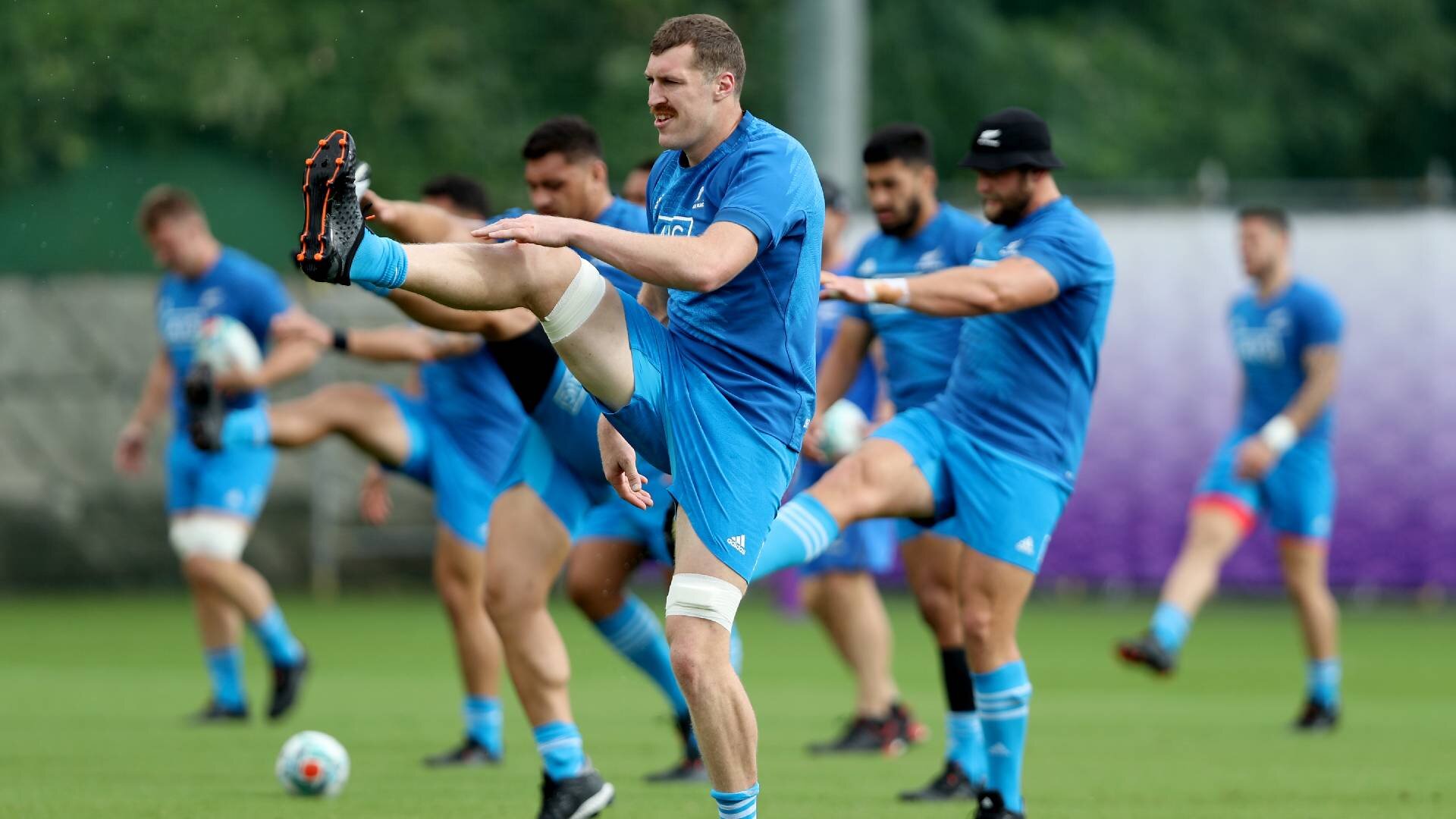Brodie Retallick returns for All Blacks clash against Namibia as new flyhalf revealed

The All Blacks have welcomed the return of star lock Brodie Retallick from injury for their World Cup clash against Namibia on Sunday.
The 28-year-old had been ruled out of action since sustaining a dislocated shoulder during the All Blacks’ Rugby Championship clash against South Africa in July.
He will, however, play for the first time in over two months after being named to start in the second row alongside stand-in skipper Sam Whitelock, who will take the captaincy duties from the rested Kieran Read for the sixth time in Tokyo.
Continue reading below…
Both players’ additions into the starting side are two of 13 changes made by All Blacks head coach Steve Hansen from the side that ran out 63-0 victors over Canada in Oita just two days ago.
Perhaps the most eye-catching alteration to the starting side is at flyhalf, where utility back Jordie Barrett comes into the No. 10 jersey for the first time in his professional career in place of Wednesday’s man-of-the-match Richie Mo’unga.
In doing so, the All Blacks will play without a dual playmaking axis for the first time since the ‘Ba’ounga’ partnership was introduced in that South Africa test in which Retallick injured himself in, as Beauden Barrett is replaced at fullback by veteran Ben Smith.
https://www.instagram.com/p/B3GJ6pzgFNJ/?utm_source=ig_web_copy_link
He will be joined by first-choice wings George Bridge and Sevu Reece to form a strong outside back contingent, while Aaron Smith reclaims his place in the No. 9 jersey.
Jack Goodhue is the only player in the backline to retain his spot from the Canada clash, and will partner up in the midfield with Anton Lienert-Brown, who takes the place of Sonny Bill Williams.
In the forward pack, there is also just one survivor in the form of Shannon Frizell at blindside flanker, who impressed in his World Cup debut at Oita Stadium.
The 2019 Rugby World Cup is about to enter its third week and there has been some substantial movement in the latest power rankings, not least due to Japan’s highly impressive win over Ireland in Pool A.https://t.co/HtWAIwHZs9
— RugbyPass (@RugbyPass) October 3, 2019
The Tongan-born star is one third of a formidable back row trio, which consists of Sam Cane at openside flanker and Ardie Savea at No. 8.
There is a new-look front row as well, with Joe Moody, Codie Taylor and Nepo Laulala swapping in for Atu Moli, Liam Coltman and Angus Ta’avao, respectively.
The relegation of Beauden Barrett and Mo’unga out of the match day squad means Hansen has named an unorthodox reserves bench, which includes both Brad Weber and TJ Perenara, with the latter providing cover at flyhalf for Jordie Barrett.
Like Barrett, Perenara has never played in the position throughout his first-class career, so how he performs in the pivot role will be of much intrigue upon his introduction into the game.
Elsewhere, Rieko Ioane has been listed at No. 23, presenting him with another opportunity to usurp Bridge for the starting left wing role come the knockout rounds.
https://www.instagram.com/p/B3JpSlngS3n/?utm_source=ig_web_copy_link
Dane Coles, Ofa Tu’ungafasi, Ta’avao, Patrick Tuipulotu and Matt Todd combine to create a strong quintet of forward substitutes.
“In naming this team, we had to consider the short turnaround between the Canadian and Namibian games,” Hansen said.
“We’ve managed to ensure that we’ve got plenty of fresh players starting this match. We’re very happy with where we are at after our first two games.
“However, the expectations going into the match on Sunday don’t change. We need to keep improving.
“In all games it’s important to nail the mental self-preparation, as it’s not about who you’re playing, it’s about your own personal standards.
“Our preparation on-field this week is all about getting the balance right over the next two days. It’s a case of not too much and not too little, from a physical point of view.”
Sexton had declared himself fit to take on Russia after missing Ireland’s shock loss to Japan with a thigh complaint.https://t.co/n56PHKgy8H
— RugbyPass (@RugbyPass) October 3, 2019
The 60-year-old coach alluded that instating Whitelock as captain for this test in the absence of Read was a logical option given the leadership qualities he provides for the side.
“Sam brings a wealth of leadership experience and is the logical choice to lead the team,” Hansen said.
“It will be the first time he’s done it in a Rugby World Cup, it’s a great honour for him and something he’ll be proud of.”
The return of Whitelock’s long-time locking partner Retallick is one that also brings with it much excitement, as does the inclusion of Barrett at No. 10.
“It’s great to have Brodie back. There’s been some great work done by not only Brodie himself but also by the medical team. Obviously, Brodie is very excited to be in a position to pull the jersey back on,” Hansen said.
“Jordie can play multiple positions in the backline and we’re confident that he’ll handle the responsibility well. He has all the skillsets required and we’re looking forward to seeing him play there.”
The All Blacks team to play Namibia:
1. Joe Moody (42)
2. Codie Taylor (47)
3. Nepo Laulala (22)
4. Brodie Retallick (77)
5. Samuel Whitelock – captain (114)
6. Shannon Frizell (7)
7. Sam Cane (64)
8. Ardie Savea (41)
9. Aaron Smith (88)
10. Jordie Barrett (13)
11. George Bridge (6)
12. Anton Lienert-Brown (39)
13. Jack Goodhue (10)
14. Sevu Reece (4)
15. Ben Smith (82)
Reserves:
16. Dane Coles (65)
17. Ofa Tuungafasi (32)
18. Angus Ta’avao (10)
19. Patrick Tuipulotu (27)
20. Matt Todd (22)
21. Brad Weber (3)
22. TJ Perenara (61)
23. Rieko Ioane (27)
In other news:

























